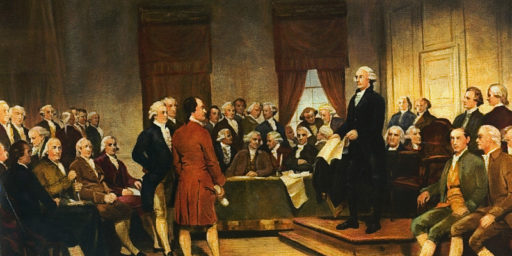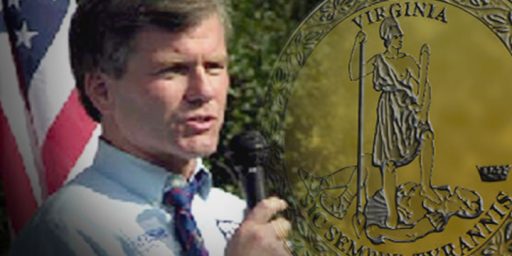Loophole in Lobbying Bill Leaves Wiggle Room
Jeff Birnbaum has looked at the reform bill proposed by House Speaker Dennis Hastert and finds that it still leaves a lot of loopholes allowing Members to take money from lobbyists.
According to lobbyists and ethics experts, even if Hastert’s proposal is enacted, members of Congress and their staffs could still travel the world on an interest group’s expense and eat steak on a lobbyist’s account at the priciest restaurants in Washington. The only requirement would be that whenever a lobbyist pays the bill, he or she must also hand the lawmaker a campaign contribution. Then the transaction would be perfectly okay. “That’s a big hole if they don’t address campaign finance,” said Joel Jankowsky, the lobbying chief of Akin Gump Strauss Hauer & Feld, one of the capital’s largest lobbying outfits.
The plans offered by Republican leaders yesterday would change two of the three areas of law or regulation that govern lobbyists’ behavior: the congressional rules that limit gifts to lawmakers and the laws that dictate the amount of disclosure that lobbyists must give the public. A third major area — campaign finance laws — would go untouched, an omission that amounts to a gaping loophole in efforts to distance lobbyists from the people they are paid to influence. Anything that members of Congress can now do in the pursuit of money for their reelections will still be permitted in the future — including accepting lobbyist-paid travel and in-town meals — unless campaign finance laws are altered.
John Aravosis is wrong, I think, in dismissing this a “classic GOP bait and switch” wherein the leadership is “just going to say that they’re doing reform — but not do it.” A majority of the Republican caucus legitimately believes in the need for reform and those who don’t understand that it is politically necessary.
Hastert has said he is going to handle campaign finance reform separately. Presumably, that’s because these changes are relatively non-controversial and can pass easily, whereas the caucus is bitterly divided on ideological grounds on camapign finance.
Aside from Constitutional and philosophical objections, though, the problem with campaign finance reform is that it simply doesn’t work. McCain-Feingold is but the most recent of numerous attempts to take money out of political campaigns enacted since 1974. All have failed and come with unintended consequences like the rise of PACs and 527 groups.
Further, up-front campaign contributions are of a different piece than having lobbyists pay for lavish meals and vacations. While perhaps problematic from some angles, accepting contributions to get one’s message out as part of the democratic process is part and parcel of a modern political campaign. By contrast, limitations on “gifts” to lawmakers are aimed at limiting personal financial gain on the part of officeholders.
Most of us on the Right side of the spectrum agree with Ed Morrissey that the ultimate “reform” is smaller government.
The true problem lies with the amount of power that the federal government wields and the vast sums of money it skims off of the American consumer and economic system to fund itself. As long as that continues, there will always be lobbyists looking to redirect it to their clients, politicians willing to take a piece of the action to deliver it, and the ethicists will always be one scandal behind in preventing it.
I am not, however, holding my breath waiting for change on the front. Not only is handing out pork in the short-term interests of lawmakers interested in re-election but the public constantly demands more goodies from the government without higher taxes.
The only hope for fixing this cycle is rather severe term limits that would attract people interested in getting things done and then moving on to the private sector, perhaps with a long ban on former Members engaging in lobbying as that private sector activity. This reform, too, is incredibly unlikely.




James: why would privatization of government functions (“smaller government” in fact, not just in theory) lead to less corruption? Won’t there be essentially the same incentive among lobbyists: to direct regulatory pressure and outsourcing contracts to their firms’ advantage? Seems to me that the small government mantra here is pretty thin on facts, given that smaller government doesn’t necessarily mean less government influence.
Brett: I don’t think it’d cut off corruption entirely, just reduce the incentives. Willie Sutton famously said he robbed banks “because that’s where the money is.” The federal government, because of its massive budget, is where the money is.